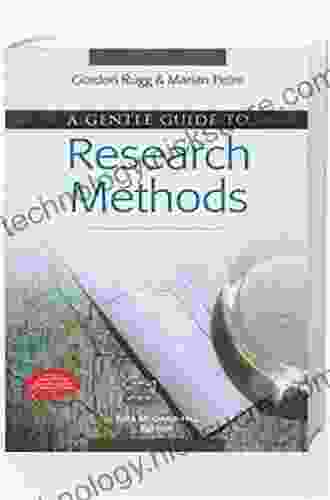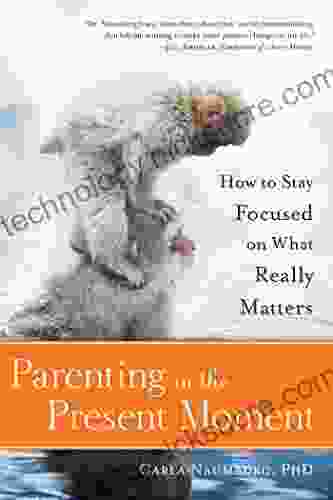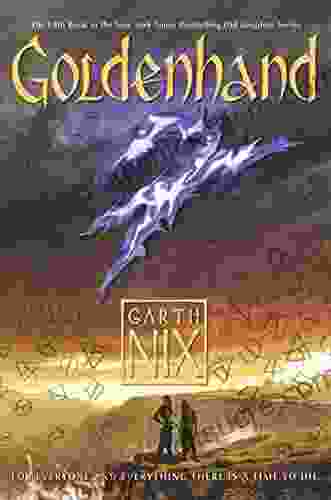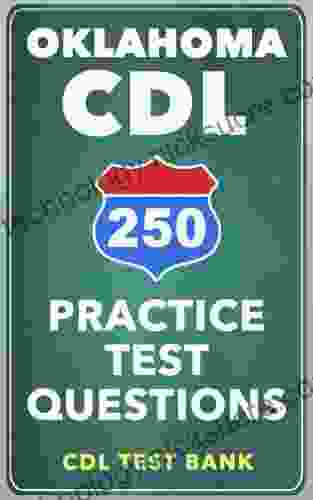A Comprehensive Guide to Research Methods: Unveiling the Art of Scientific Inquiry

Research, the systematic and meticulous investigation into a specific subject, lies at the heart of scientific discovery and intellectual progress. It empowers us to explore the unknown, unravel complex phenomena, and advance our understanding of the world around us. However, embarking on a research journey requires a solid foundation in research methods, the methodologies and techniques that guide us in conducting rigorous and reliable studies. This article serves as a comprehensive guide to research methods, providing a comprehensive overview of the various approaches, techniques, and considerations involved in the research process.
Quantitative Research Methods
Quantitative research methods rely on numerical data to understand relationships between variables. They aim to quantify and measure phenomena using statistical methods and numerical analysis. Common quantitative methods include:
4.3 out of 5
| Language | : | English |
| File size | : | 5126 KB |
| Screen Reader | : | Supported |
| Print length | : | 256 pages |
| X-Ray for textbooks | : | Enabled |
- Surveys: Collecting data from a large sample through questionnaires to assess opinions, attitudes, and behaviors.
- Experiments: Manipulating variables under controlled conditions to test cause-and-effect relationships.
- Observational Studies: Observing and recording data on subjects without direct intervention.
- Meta-Analysis: Combining results from multiple studies to draw broader s.
Qualitative Research Methods
Qualitative research methods delve into the subjective experiences, perspectives, and meanings attributed by individuals to a particular phenomenon. They prioritize in-depth understanding through interpretive analysis of non-numerical data. Qualitative methods include:
- Interviews: Engaging in face-to-face or virtual conversations to gather insights from individuals.
- Focus Groups: Facilitating group discussions to explore shared opinions and perceptions.
- Participant Observation: Immersively observing participants in their natural settings to understand their behaviors and interactions.
- Document Analysis: Analyzing written or visual materials to gain insights into historical events, social dynamics, or cultural practices.
Mixed Methods Research
Mixed methods research combines both quantitative and qualitative approaches to provide a more comprehensive understanding of the research topic. It allows researchers to triangulate findings, strengthen evidence, and gain a holistic perspective. Mixed methods designs include:
- Exploratory Sequential Design: Initially using qualitative methods to explore a topic, then using quantitative methods to further investigate specific hypotheses.
- Explanatory Sequential Design: Using quantitative methods to test hypotheses, then using qualitative methods to explain the findings.
- Concurrent Triangulation Design: Collecting both quantitative and qualitative data simultaneously from the same participants.
Research Design Considerations
Choosing an Appropriate Research Method
Selecting the most suitable research method depends on the research question, the type of data required, and the available resources. Researchers must carefully consider the strengths and limitations of each method.
Sampling Strategies
Sampling involves selecting a representative subset of the population to participate in the study. Common sampling strategies include:
- Random Sampling: Selecting participants randomly from the population, ensuring each individual has an equal chance of being included.
- Stratified Sampling: Dividing the population into subgroups (strata) and randomly selecting participants from each subgroup.
- Convenience Sampling: Selecting participants who are easily accessible or convenient to recruit.
Data Collection
Researchers must employ appropriate data collection methods to ensure the accuracy and reliability of the data. Common methods include:
- Surveys: Distributing questionnaires online, in person, or via mail to gather quantitative data.
- Interviews: Conducting structured, semi-structured, or unstructured interviews to collect qualitative data.
- Observations: Recording behaviors, interactions, and events in a structured or unstructured manner.
- Document Analysis: Analyzing written or visual materials to extract relevant information.
Data Analysis
Once data is collected, researchers utilize statistical or interpretive techniques to analyze and interpret the findings. Quantitative data analysis involves statistical tests and numerical analysis, while qualitative data analysis involves thematic analysis, content analysis, or narrative analysis.
Ethical Considerations
Research must adhere to ethical principles to protect participants and ensure responsible conduct. Ethical considerations include:
- Informed Consent: Obtaining informed consent from participants before involving them in the study.
- Confidentiality: Maintaining the privacy and anonymity of participants.
- Research Integrity: Avoiding bias, plagiarism, and falsifying data.
- Institutional Review Board (IRB) Approval: Seeking approval from an IRB for research involving human participants.
The field of research methods is vast and multifaceted, encompassing a wide range of approaches, techniques, and considerations. This comprehensive guide has provided an overview of the key elements involved in research, including quantitative and qualitative research methods, mixed methods research, research design considerations, data collection and analysis, and ethical implications. Understanding and applying these principles is essential for conducting rigorous, reliable, and ethical research that contributes to scientific knowledge and societal advancement. As researchers embark on their research journeys, they must continuously refine their understanding of research methods, embrace innovation, and uphold the highest ethical standards to ensure the integrity and impact of their work.
4.3 out of 5
| Language | : | English |
| File size | : | 5126 KB |
| Screen Reader | : | Supported |
| Print length | : | 256 pages |
| X-Ray for textbooks | : | Enabled |
Do you want to contribute by writing guest posts on this blog?
Please contact us and send us a resume of previous articles that you have written.
 Fiction
Fiction Non Fiction
Non Fiction Romance
Romance Mystery
Mystery Thriller
Thriller SciFi
SciFi Fantasy
Fantasy Horror
Horror Biography
Biography Selfhelp
Selfhelp Business
Business History
History Classics
Classics Poetry
Poetry Childrens
Childrens Young Adult
Young Adult Educational
Educational Cooking
Cooking Travel
Travel Lifestyle
Lifestyle Spirituality
Spirituality Health
Health Fitness
Fitness Technology
Technology Science
Science Arts
Arts Crafts
Crafts DIY
DIY Gardening
Gardening Petcare
Petcare Megan Carle
Megan Carle Phil Hanrahan
Phil Hanrahan Howard Schor
Howard Schor Nate Silver
Nate Silver Winona Guo
Winona Guo Mary Ellen Hannibal
Mary Ellen Hannibal Kristin Gambaccini
Kristin Gambaccini Cecil B Hartley
Cecil B Hartley P J Agness
P J Agness Qaiser Feroze
Qaiser Feroze Suzie Sheehy
Suzie Sheehy Sam Jalloh
Sam Jalloh Kevin Gallagher
Kevin Gallagher Ellen Snortland
Ellen Snortland Alexander Bennett
Alexander Bennett Jase Robertson
Jase Robertson Saunders Mac Lane
Saunders Mac Lane Douglas D Scott
Douglas D Scott Pascal Boyer
Pascal Boyer Robbie Couch
Robbie Couch Richard Ronald
Richard Ronald Aaron Robinet
Aaron Robinet Raj Kumar
Raj Kumar Mark Warren
Mark Warren Elon Vidal
Elon Vidal Alex Itsios
Alex Itsios Saxon Andrew
Saxon Andrew Albert W A Schmid
Albert W A Schmid Stephen L Sass
Stephen L Sass Scott Fratcher
Scott Fratcher Jacqueline Tourville
Jacqueline Tourville J C Herz
J C Herz Katherine Leigh
Katherine Leigh Evan F Moore
Evan F Moore Wesley Bernardini
Wesley Bernardini Alejandro Portes
Alejandro Portes Stephanie Ermenegild
Stephanie Ermenegild Linda Egenes
Linda Egenes Hadley Wickham
Hadley Wickham Oluwaseun Ajayi
Oluwaseun Ajayi Catherine Crier
Catherine Crier Kieran Mccarthy
Kieran Mccarthy Duncan Wells
Duncan Wells Nikki Nichols
Nikki Nichols Douglas Doman
Douglas Doman Yang Erche Namu
Yang Erche Namu Brett Cohen
Brett Cohen Mark Sisson
Mark Sisson Dan Jacob
Dan Jacob Victoria Wilson
Victoria Wilson Chanice Lee
Chanice Lee Michael Thompson
Michael Thompson Gail M Nelson
Gail M Nelson Margaret Rooke
Margaret Rooke Pekka Louhiala
Pekka Louhiala Jason R Rich
Jason R Rich Mia King
Mia King Paul Volponi
Paul Volponi Donnie Eichar
Donnie Eichar Ron Mckeefery
Ron Mckeefery Gary Coleman
Gary Coleman Ben Malisow
Ben Malisow Kinsey Phifer
Kinsey Phifer Ken Schultz
Ken Schultz Mine Dogucu
Mine Dogucu C C Hunter
C C Hunter Patrick Taylor
Patrick Taylor Alex Light
Alex Light Anne Bogel
Anne Bogel Stormie Omartian
Stormie Omartian Eric R Kandel
Eric R Kandel Stan Utley
Stan Utley Genese Marie Sodikoff
Genese Marie Sodikoff Elena Zotova
Elena Zotova Carla Naumburg
Carla Naumburg Aaron Reynolds
Aaron Reynolds George Marshall
George Marshall Erin Bowe
Erin Bowe Anatoli Boukreev
Anatoli Boukreev Gary Nicol
Gary Nicol Phil Pierce
Phil Pierce Georgiann Davis
Georgiann Davis Martin Baldridge
Martin Baldridge Hiro Ainana
Hiro Ainana Alex Pentland
Alex Pentland Fridtjof Nansen
Fridtjof Nansen Kirsten Koza
Kirsten Koza Ben Ainslie
Ben Ainslie Rebecca Wilson
Rebecca Wilson Chuck Norris
Chuck Norris Steve Helling
Steve Helling Richard M Foxx
Richard M Foxx Lara S Ormiston
Lara S Ormiston Don Bendell
Don Bendell Ernest Hemingway
Ernest Hemingway Marilynn Hughes
Marilynn Hughes Alex Morgan
Alex Morgan Barbara Ehrenreich
Barbara Ehrenreich Joan Wulff
Joan Wulff Jacob Sannox
Jacob Sannox Janja Lalich
Janja Lalich Sabine Hossenfelder
Sabine Hossenfelder Aman Gupta
Aman Gupta Milan Yerkovich
Milan Yerkovich Alex Bezzerides
Alex Bezzerides Idan Ravin
Idan Ravin Michael Sandler
Michael Sandler David G Kleinbaum
David G Kleinbaum John Thorne
John Thorne Duncan Butchart
Duncan Butchart Alex Guarnaschelli
Alex Guarnaschelli Sarah Franklin
Sarah Franklin Albert Hofmann
Albert Hofmann Lonely Planet
Lonely Planet Gordon Feinberg
Gordon Feinberg Laura Eckert
Laura Eckert Arshay Cooper
Arshay Cooper Chris Englert
Chris Englert Devin Devasquez
Devin Devasquez Ari Mennander
Ari Mennander Alex Reinhart
Alex Reinhart Robert L Wolke
Robert L Wolke Peter Ross
Peter Ross Soo Kim Abboud
Soo Kim Abboud Vanessa Van Edwards
Vanessa Van Edwards Patrick Alan Danaher
Patrick Alan Danaher Alex Johnson
Alex Johnson Julie Berry
Julie Berry Derrick Niederman
Derrick Niederman Peter Brown
Peter Brown Terry Marsh
Terry Marsh Teresa Denton
Teresa Denton Roseanne A Brown
Roseanne A Brown Luis Angel Echeverria
Luis Angel Echeverria L Michele Issel
L Michele Issel Robert Benson
Robert Benson Namita Prasad
Namita Prasad Cosmic Kids Publications
Cosmic Kids Publications Jeana Jorgensen
Jeana Jorgensen Marian Dewane
Marian Dewane Dan Gookin
Dan Gookin Pamela K Lamb
Pamela K Lamb Travis Eliot
Travis Eliot Judy Dutton
Judy Dutton Stephon Alexander
Stephon Alexander James Patterson
James Patterson Sarah Ockwell Smith
Sarah Ockwell Smith Eric Enge
Eric Enge Vasti Torres
Vasti Torres Charlene L Edge
Charlene L Edge Eric Mason
Eric Mason Zach Davis
Zach Davis Aleister Crowley
Aleister Crowley Tim Moore
Tim Moore Alexa Nicole Cucchiara
Alexa Nicole Cucchiara Chella Man
Chella Man Brad Borkan
Brad Borkan John Quick
John Quick Albert Ellis
Albert Ellis Greg Michaelson
Greg Michaelson Lake E High
Lake E High Hal Higdon
Hal Higdon S Kelley Harrell
S Kelley Harrell Kevin Bales
Kevin Bales Sarah Lynne Bowman
Sarah Lynne Bowman Michele Filgate
Michele Filgate Scott Butler
Scott Butler Sally Huss
Sally Huss Sam Sheridan
Sam Sheridan Stanley Cohen
Stanley Cohen Jennifer Van Allen
Jennifer Van Allen Robertson Tait
Robertson Tait Daniel Defoe
Daniel Defoe Peter Matthiessen
Peter Matthiessen Elissa Wall
Elissa Wall Katrina M Adams
Katrina M Adams Alex Riley
Alex Riley Itzhak Bentov
Itzhak Bentov Alex Gillis
Alex Gillis Gabriyell Sarom
Gabriyell Sarom Hannah V Holmes
Hannah V Holmes Michele Gelfand
Michele Gelfand Ashton Cartwright
Ashton Cartwright F T Lukens
F T Lukens Alex Harris
Alex Harris Jim Hynes
Jim Hynes Sheryl Buckland
Sheryl Buckland Mark Golds
Mark Golds Alessio Mangoni
Alessio Mangoni Philip Wylie
Philip Wylie Walter Gretzky
Walter Gretzky Bob Palmer
Bob Palmer Glenn Rivers
Glenn Rivers Titania Hardie
Titania Hardie Diana L Paxson
Diana L Paxson Stephen Wilbers
Stephen Wilbers David N Schwartz
David N Schwartz Alexander Mackenzie
Alexander Mackenzie Jenna Gottlieb
Jenna Gottlieb Alfred P Rovai
Alfred P Rovai Dr Yvonne S Thornton
Dr Yvonne S Thornton Suzanne Collins
Suzanne Collins Christie Cognevich
Christie Cognevich David Leadbetter
David Leadbetter Laura Pavlov
Laura Pavlov Peter Galison
Peter Galison Bertus Engelbrecht
Bertus Engelbrecht Christina Riggs
Christina Riggs Kathleen Mcmillan
Kathleen Mcmillan Howard Carter
Howard Carter Stephan Martin
Stephan Martin Game Spark
Game Spark Beverleigh H Piepers
Beverleigh H Piepers Garth Nix
Garth Nix Alexander Boxer
Alexander Boxer Eli Burakian
Eli Burakian Alexander Jones
Alexander Jones W C Mcrae
W C Mcrae Kathryn Purdie
Kathryn Purdie Ernest T Stringer
Ernest T Stringer Harold Klemp
Harold Klemp Don Pitcher
Don Pitcher Alfie Kohn
Alfie Kohn Darin Ingels
Darin Ingels Dennis R Helsel
Dennis R Helsel Sabbithry Persad Mba
Sabbithry Persad Mba Jon B Gould
Jon B Gould Peter J Feibelman
Peter J Feibelman Conn Iggulden
Conn Iggulden Vimla L Patel
Vimla L Patel Alex J Gutman
Alex J Gutman Janine Marsh
Janine Marsh Alistair Moffat
Alistair Moffat Stephen R Lawhead
Stephen R Lawhead Kingsley Amis
Kingsley Amis Brian Beffort
Brian Beffort Julian B Barbour
Julian B Barbour Austin Murphy
Austin Murphy Keith H Basso
Keith H Basso Alberta Hawse
Alberta Hawse J Richard Hackman
J Richard Hackman Larry Pardey
Larry Pardey Anne Dachel
Anne Dachel David J Chalmers
David J Chalmers Matthew Johnson
Matthew Johnson Richard D Easton
Richard D Easton Dan Purser Md
Dan Purser Md Jeremy Kubica
Jeremy Kubica George E Vaillant
George E Vaillant Fiaz Rafiq
Fiaz Rafiq Celia Hodent
Celia Hodent Deborah L Davis
Deborah L Davis Richard Cole
Richard Cole Q S Khan
Q S Khan Sophie David
Sophie David Jeff Galloway
Jeff Galloway Amy Newmark
Amy Newmark David N Myers
David N Myers Jimmy Connors
Jimmy Connors Alan Lightman
Alan Lightman Hannah Arendt
Hannah Arendt John Stage
John Stage Danielle Paige
Danielle Paige Will Hart
Will Hart Pedro Domingos
Pedro Domingos Linda White
Linda White Sareen S Gropper
Sareen S Gropper Molly Knox Ostertag
Molly Knox Ostertag Alex Bellos
Alex Bellos John Boyette
John Boyette Gigi Georges
Gigi Georges Alessandro Valerani
Alessandro Valerani Taylor Harris
Taylor Harris Alex Wade
Alex Wade Holly Black
Holly Black Deirdre Martin
Deirdre Martin Steve Flink
Steve Flink Leigh Hatts
Leigh Hatts Pittacus Lore
Pittacus Lore Jennifer Kramer
Jennifer Kramer Fataniss Store
Fataniss Store R K Gupta
R K Gupta Elizabeth White
Elizabeth White Catherine Dawson
Catherine Dawson Caren Cooper
Caren Cooper Alexa Whitewolf
Alexa Whitewolf Alexander Meyer
Alexander Meyer Joe Nobody
Joe Nobody Chip Heath
Chip Heath Bill Haggerty
Bill Haggerty Lynn Alley
Lynn Alley Albert J Raboteau
Albert J Raboteau Michael Terry
Michael Terry Andrew Stellman
Andrew Stellman Suzanna Mcgee
Suzanna Mcgee Alex Polyakov
Alex Polyakov Henrik Beyer
Henrik Beyer Phil Gaimon
Phil Gaimon Alexandra Bracken
Alexandra Bracken Audra Fordin
Audra Fordin Chukwuma Eleodimuo
Chukwuma Eleodimuo Alex Boese
Alex Boese Alex J Packer
Alex J Packer Wallace Wang
Wallace Wang Kalynn Bayron
Kalynn Bayron George Ehrenhaft
George Ehrenhaft C J Brown
C J Brown Julia Wertz
Julia Wertz K D Hume
K D Hume Kent David Kelly
Kent David Kelly Alex Hibbert
Alex Hibbert Sally Moomaw
Sally Moomaw Willard A Palmer
Willard A Palmer David Borgenicht
David Borgenicht Jerry C Zee
Jerry C Zee Philip Ball
Philip Ball Danielle Tumminio Hansen
Danielle Tumminio Hansen Fretta Reitzes
Fretta Reitzes Mark Reed
Mark Reed Albert Marrin
Albert Marrin Alex Zimmerman
Alex Zimmerman Katie Edwards
Katie Edwards Scott L Smith
Scott L Smith Thomas Sowell
Thomas Sowell Rachael Ray
Rachael Ray Rough Guides
Rough Guides Nancy Marie Brown
Nancy Marie Brown Kortney Keisel
Kortney Keisel Mary Lynne Fernandez
Mary Lynne Fernandez Tracy Brown Collins
Tracy Brown Collins Morgan Lyle
Morgan Lyle Jerry C Whitaker
Jerry C Whitaker Tony Roig
Tony Roig Kyle Rohrig
Kyle Rohrig Olivier Doleuze
Olivier Doleuze Paul Sating
Paul Sating Daniel Shapiro
Daniel Shapiro Scott Kelly
Scott Kelly Albert Rutherford
Albert Rutherford Stephen K Hayes
Stephen K Hayes Brigid Kemmerer
Brigid Kemmerer Graham Hancock
Graham Hancock Alda Sigmundsdottir
Alda Sigmundsdottir Brent Herrick
Brent Herrick Alex Mars
Alex Mars Alexander Clarke
Alexander Clarke Nancy Silverton
Nancy Silverton Albert S Tarendash
Albert S Tarendash Alexander Ferrauti
Alexander Ferrauti James Suzman
James Suzman Daniel Pautrat
Daniel Pautrat Jennifer Estep
Jennifer Estep Michael Steven
Michael Steven Alberto Villoldo
Alberto Villoldo Alexander Mccall Smith
Alexander Mccall Smith Scott Whitlock
Scott Whitlock Steve Bechtel
Steve Bechtel Anna Post
Anna Post Leonhard Euler
Leonhard Euler Martha Sears
Martha Sears Todd Denault
Todd Denault Robert Dos Remedios
Robert Dos Remedios Nate Orlowek
Nate Orlowek Kristen Jane Anderson
Kristen Jane Anderson Lisa Manterfield
Lisa Manterfield Celeste Headlee
Celeste Headlee Alex Hunter
Alex Hunter Thomas Cahill
Thomas Cahill Otto Kroeger
Otto Kroeger Heather Dale
Heather Dale Alexander L Co
Alexander L Co Cary Nemeroff
Cary Nemeroff Robert Penn
Robert Penn Aleksandr Anufriyev
Aleksandr Anufriyev Sky Marsen
Sky Marsen Margaret Willson
Margaret Willson Peter Collier
Peter Collier Robert Spindler
Robert Spindler Marvin Harris
Marvin Harris Upgraded Brain
Upgraded Brain Ruth Minsky Sender
Ruth Minsky Sender Scott Turansky
Scott Turansky Jennifer Boyle
Jennifer Boyle Jules Wake
Jules Wake Angelo Tropea
Angelo Tropea Laura Morton Rd
Laura Morton Rd Amber Lia
Amber Lia John Burroughs
John Burroughs Richard Shotton
Richard Shotton Simon Monk
Simon Monk Sara Shepard
Sara Shepard Daniel L Everett
Daniel L Everett Denny Matthews
Denny Matthews Janie B Butts
Janie B Butts Phil Jarratt
Phil Jarratt Aubrey Sherman
Aubrey Sherman Robert W Winters
Robert W Winters Matt Johanson
Matt Johanson Jim Davidson
Jim Davidson David Shinar
David Shinar Alex Wolf
Alex Wolf Thomas Jaden
Thomas Jaden L R Trovillion
L R Trovillion Rajesh K Naz
Rajesh K Naz Yannis Detorakis
Yannis Detorakis Russ Unger
Russ Unger Loriann Oberlin
Loriann Oberlin Alicia Ranoldo
Alicia Ranoldo David Farrier
David Farrier James Johonnot
James Johonnot Victor Davis Hanson
Victor Davis Hanson Patrick F Mcmanus
Patrick F Mcmanus Geza Vermes
Geza Vermes Lyn Kelley
Lyn Kelley Brent Zwerneman
Brent Zwerneman Darl Kuhn
Darl Kuhn Dipika Mukherjee
Dipika Mukherjee Amanda Epperson
Amanda Epperson Phyllis Good
Phyllis Good Kevin Mcaleer
Kevin Mcaleer Jennet Conant
Jennet Conant Jennifer Cohen Harper
Jennifer Cohen Harper Mark Creasy
Mark Creasy Michael Clary
Michael Clary Lisa Silverman
Lisa Silverman Paul Trammell
Paul Trammell Tetsu Kariya
Tetsu Kariya Phil Keith
Phil Keith Shannon Jett
Shannon Jett Theodore X O Connell
Theodore X O Connell Thomas Huhti
Thomas Huhti Earl Swift
Earl Swift Emma Hansen
Emma Hansen Sarah Stewart Johnson
Sarah Stewart Johnson Moh Kolli Carnet
Moh Kolli Carnet Donald D Hoffman
Donald D Hoffman Gf Denehy
Gf Denehy Michael Digiacomo
Michael Digiacomo Peter Maguire
Peter Maguire Victoria Schwab
Victoria Schwab Roy Plotnick
Roy Plotnick John Kretschmer
John Kretschmer Gabriel Levy
Gabriel Levy Karen Casey
Karen Casey Bruce Johnson
Bruce Johnson Olivia Wildenstein
Olivia Wildenstein Derek Lundy
Derek Lundy Mauricio Fau
Mauricio Fau Alex Banks
Alex Banks Dr Rebecca Harwin
Dr Rebecca Harwin Steve Warner
Steve Warner G Blake Meike
G Blake Meike Ash Perrin
Ash Perrin Gordon Rugg
Gordon Rugg River
River Andrew Zerling
Andrew Zerling David L Demets
David L Demets Josh Bryant
Josh Bryant Rebecca Schrag Hershberg
Rebecca Schrag Hershberg Ralph Vacchiano
Ralph Vacchiano Meredith Atwood
Meredith Atwood Michael Teitelbaum
Michael Teitelbaum Jon Krakauer
Jon Krakauer Eric Zandona
Eric Zandona Jenny Mackay
Jenny Mackay Tiffany Dionne
Tiffany Dionne William R Short
William R Short Tim Cahill
Tim Cahill Diana Hopkins
Diana Hopkins Arieh Ben Naim
Arieh Ben Naim David Thomas
David Thomas
Light bulbAdvertise smarter! Our strategic ad space ensures maximum exposure. Reserve your spot today!
 Mason PowellFollow ·15.8k
Mason PowellFollow ·15.8k Jonathan FranzenFollow ·8.5k
Jonathan FranzenFollow ·8.5k Clark CampbellFollow ·14.2k
Clark CampbellFollow ·14.2k Steve CarterFollow ·13.7k
Steve CarterFollow ·13.7k Miguel de CervantesFollow ·8k
Miguel de CervantesFollow ·8k Fletcher MitchellFollow ·5k
Fletcher MitchellFollow ·5k Henry GreenFollow ·10.7k
Henry GreenFollow ·10.7k Henry HayesFollow ·16.1k
Henry HayesFollow ·16.1k

 Jeffrey Cox
Jeffrey CoxEasy Recipes And Meal Plans For Healthy Pregnancy
Congratulations on...

 Andy Cole
Andy ColeDive into the Fiery Ordeal and Mockingjay's Rebellion: An...
: A Captivating Dystopian Saga The...

 Ernest Powell
Ernest PowellLore Alexandra Bracken: Unveiling the Mastermind Behind...
: In the vast expanse of contemporary...

 T.S. Eliot
T.S. EliotThe Story of the Invention of the Typewriter: 150 Years...
The typewriter, a...
4.3 out of 5
| Language | : | English |
| File size | : | 5126 KB |
| Screen Reader | : | Supported |
| Print length | : | 256 pages |
| X-Ray for textbooks | : | Enabled |
















